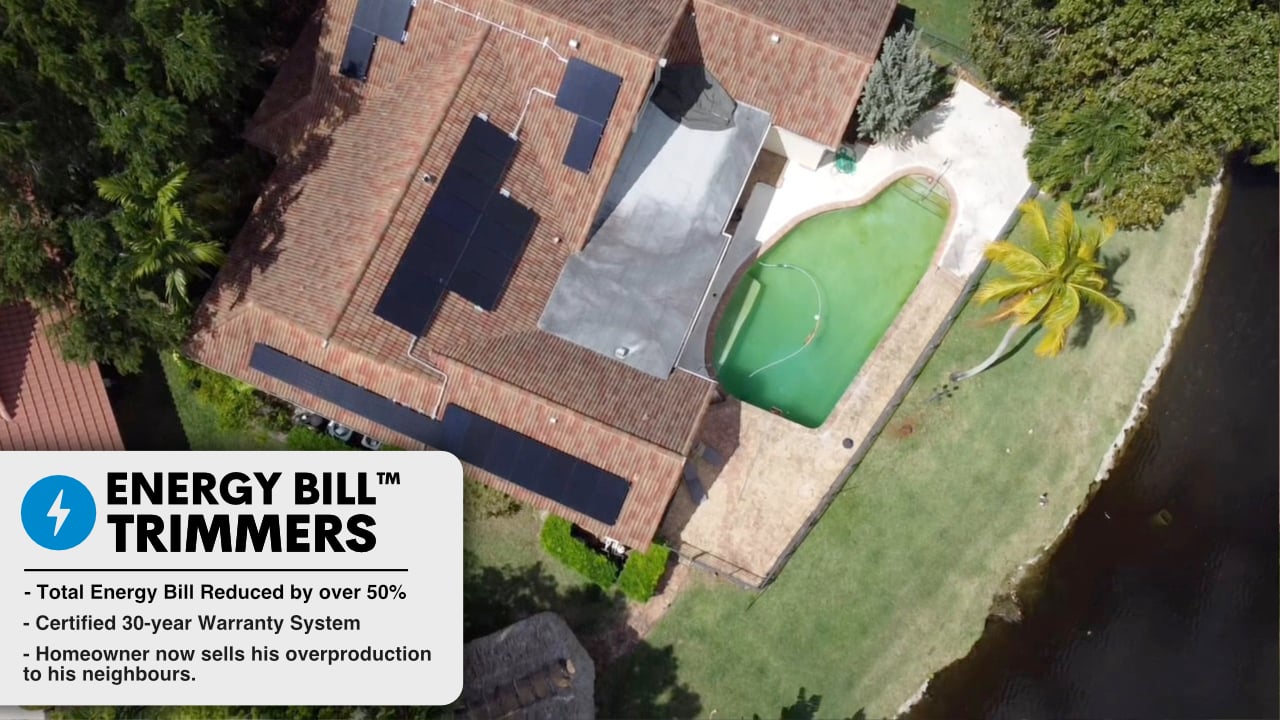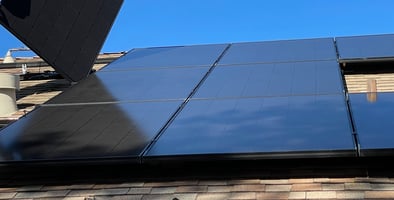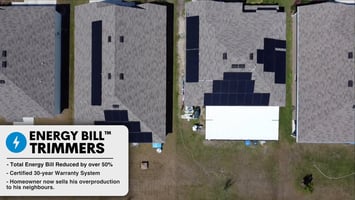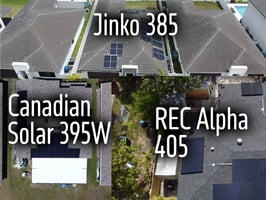The adoption of solar energy has grown exponentially in recent years, offering a sustainable and...
Leasing Solar Panels vs. Traditional Electric Bills: The Bright Choice
In today's world, sustainability and cost-efficiency are at the forefront of our minds. With the ever-increasing concern about climate change and rising energy costs, individuals and businesses alike are seeking greener alternatives to power their homes and operations. One such alternative gaining popularity is leasing solar panels. In this article, we will explore the benefits of leasing solar panels over traditional electric bills, highlighting its consumption method similarities in industries such as automotive, manufacturing, farming, and aviation.
Leasing Solar Panels: A Sustainable and Economical Choice
1. The Benefits of Leasing Solar Panels
Leasing solar panels offers a multitude of advantages, making it a viable choice for both residential and commercial consumers. Here are some key benefits:
a. Cost Savings: Leasing allows you to harness solar energy without the substantial upfront costs associated with purchasing and installing solar panels. Instead of paying for the entire system, you pay a monthly lease fee that is often lower than your traditional electric bill.
b. Environmental Impact: Solar panels reduce your carbon footprint by generating clean, renewable energy. By choosing solar leasing, you contribute to a greener planet and support the transition to sustainable energy sources.
c. Minimal Maintenance: Leasing companies typically handle the maintenance and repairs of the solar panel system, saving you time and hassle.
d. Flexibility: Leasing contracts often come with various options, including buyout opportunities, allowing you to eventually own the system or upgrade to more advanced technology.

Leasing solar panels is the most popular way of lowering energy bills right now. The method has been increasing over the past couple of years.
2. Leasing as a Consumption Method
Leasing is a consumption method that extends beyond solar panels. It's a strategy widely used in various industries, including automotive, manufacturing, farming, and aviation.
a. Automotive Leasing: Just as you can lease solar panels, you can lease a vehicle. For example, consider the Toyota Camry LE, a popular sedan. A 3-year lease for this car might cost you $250 per month, making it an affordable alternative to purchasing the vehicle outright.
b. Manufacturing Equipment Leasing: Manufacturers typically lease machinery like CNC milling machines. A Haas VF-2SS, a high-quality milling machine, could be leased for approximately $1,500 per month, allowing businesses to access cutting-edge technology without the initial capital outlay.
c. Farming Equipment Leasing: Farmers can also benefit from leasing. A John Deere 6M Series tractor might be leased for around $800 per month, giving farmers access to advanced agricultural equipment without a substantial upfront investment.
d. Aviation Leasing: Airlines often lease aircraft to expand their fleets without the massive cost of purchasing new planes. For instance, leasing an Airbus A320 might cost around $400,000 per month, providing airlines with flexibility and cost control.
Leasing Savings start Instantly
By just installing solar panels, your monthly energy bill goes down. Period.
As soon as you start paying much less per kWh, the immediate difference will come up instantly, as an Instant return. Still, in the long run, you will get even more savings, depending on the scenario. This is why we will consider the two different possible scenarios on energy bill increase:
- 1997–2020 period
- 2020–2023 period
The 1997 - 2020 Period: ~2.4% per year
Let's now compare the financial advantages of leasing solar panels with different interest rates. We'll use a 15-year timeframe and start with a monthly electric bill of $300. We'll compare two interest rates: 2.9% and 10%.
The 2.9% is the current Sunnova escalator rate and the ~2.4% is the rate at which electricity has increased over the mentioned period, according to U.S. Energy Administration Information.
Let's also assume your bill is $300/month, but after you installed solar panels, it dropped now to $180, as you are paying less now per kWh.
The math:
| Year | Monthly Lease Payment WITH SOLAR PANELS (2.9%) | Yearly Electricity Cost WITH SOLAR PANELS (2.9%) | Monthly Utility Payment (2.4%) | Yearly Utility Cost (2.4%) |
Savings Difference (for each year) |
Cumulative Savings Difference |
|---|---|---|---|---|---|---|
| 1 | $180 | $2,160 | $300 | $3,600 | $1,440 | $1,440 |
| 2 | $183 | $2,196 | $303 | $3,636 | $1,440 | $2,880 |
| 3 | $186 | $2,232 | $307 | $3,684 | $1,452 | $4,344 |
| 4 | $189 | $2,268 | $310 | $3,720 | $1,452 | $5,796 |
| 5 | $193 | $2,316 | $314 | $3,768 | $1,452 | $7,248 |
| 6 | $196 | $2,352 | $317 | $3,804 | $1,452 | $8,700 |
| 7 | $199 | $2,388 | $321 | $3,852 | $1,464 | $10,164 |
| 8 | $203 | $2,436 | $324 | $3,888 | $1,452 | $11,616 |
| 9 | $206 | $2,472 | $328 | $3,936 | $1,464 | $13,080 |
| 10 | $210 | $2,520 | $331 | $3,972 | $1,452 | $14,532 |
| 11 | $214 | $2,568 | $335 | $4,020 | $1,452 | $15,984 |
| 12 | $218 | $2,616 | $338 | $4,056 | $1,440 | $17,424 |
| 13 | $222 | $2,664 | $342 | $4,104 | $1,440 | $18,864 |
| 14 | $227 | $2,724 | $345 | $4,140 | $1,416 | $20,280 |
| 15 | $231 | $2,772 | $349 | $4,188 | $1,416 | $21,696 |
| 16 | $236 | $2,832 | $352 | $4,224 | $1,392 | $23,088 |
| 17 | $241 | $2,892 | $356 | $4,272 | $1,380 | $24,468 |
| 18 | $246 | $2,952 | $359 | $4,308 | $1,356 | $25,824 |
| 19 | $252 | $3,024 | $363 | $4,356 | $1,332 | $27,156 |
| 20 | $257 | $3,084 | $366 | $4,392 | $1,308 | $28,464 |
As the table shows, leasing solar panels at a 2.9% interest rate consistently results in lower monthly payments compared to the utility bill with the historical rate hike. Over 20 years, the savings from the Solar Panels can be substantial.
How about if things are similar to 2020-2023? ~5% per year
| Year | Monthly Lease Payment WITH SOLAR PANELS (2.9%) | Yearly Electricity Cost WITH SOLAR PANELS (2.9%) | Monthly Utility Payment (5.0%) | Yearly Utility Cost (5.0%) | Savings Difference (for each year) | Cumulative Savings Difference |
|---|---|---|---|---|---|---|
| 1 | $180 | $2,160 | $300 | $3,600 | $1,440 | $1,440 |
| 2 | $183 | $2,196 | $315 | $3,780 | $1,584 | $3,024 |
| 3 | $186 | $2,232 | $330 | $3,960 | $1,728 | $4,752 |
| 4 | $189 | $2,268 | $346.50 | $4,158.50 | $1,890 | $6,642 |
| 5 | $193 | $2,316 | $363.83 | $4,366 | $2,049 | $8,691 |
| 6 | $196 | $2,352 | $382.02 | $4,584.22 | $2,232 | $10,923 |
| 7 | $199 | $2,388 | $401.12 | $4,813.48 | $2,425 | $13,348 |
| 8 | $203 | $2,436 | $421.18 | $5,054.16 | $2,618 | $15,966 |
| 9 | $206 | $2,472 | $442.24 | $5,306.88 | $2,834 | $18,800 |
| 10 | $210 | $2,520 | $464.35 | $5,572.16 | $2,952 | $21,752 |
| 11 | $214 | $2,568 | $487.57 | $5,850.80 | $3,282 | $24,834 |
| 12 | $218 | $2,616 | $512.95 | $6,155.40 | $3,539 | $28,373 |
| 13 | $222 | $2,664 | $539.59 | $6,475.08 | $3,811 | $32,185 |
| 14 | $227 | $2,724 | $567.57 | $6,810.80 | $4,086 | $36,271 |
| 15 | $231 | $2,772 | $596.95 | $7,163.40 | $4,390 | $40,661 |
| 16 | $236 | $2,832 | $627.85 | $7,534.20 | $4,702 | $45,363 |
| 17 | $241 | $2,892 | $660.34 | $7,924.08 | $5,032 | $50,395 |
| 18 | $246 | $2,952 | $694.36 | $8,332.32 | $5,380 | $55,775 |
| 19 | $252 | $3,024 | $730.07 | $8,760.84 | $5,736 | $61,525 |
| 20 | $257 | $3,084 | $767.58 | $9,210.96 | $6,126 | $67,651 |
Once again, if rates continue to be as the past three years, it will still extend further to more savings for you if you switch to lease your solar panels.
Conclusion: Yes, you need to Lease
Leasing solar panels offers numerous benefits, including cost savings, environmental benefits, and flexibility. It aligns with the consumption method found in various industries, making it a proven and reliable strategy for managing assets.
A savings ranging from $28,000 in the worst-case scenario to $67,000 if the trend of the last 3 years continues is definitely a good deal.
By choosing solar leasing and securing a favourable interest rate, you can not only reduce your carbon footprint but also enjoy significant financial savings in the long run. Make the bright choice and consider leasing solar panels to power your future sustainably and economically.



